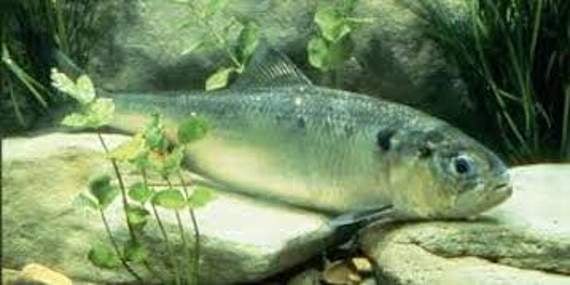UP to half a million fish a day could be sucked from the Severn estuary into Hinkley Point C nuclear power station if it is allowed to change the design of a “giant plughole” in its cooling system, wildlife campaigners and environmentalists claimed this week.
The outcry has followed an application from power station builders EDF for permission to change the design of its cooling system which will draw water directly from the estuary.
Work has already begun on the system’s two tunnels, which will suck in the equivalent weight in seawater of a dozen buses every second, along with all sea life in it.
EDF claims that a mesh will stop larger fish being sucked into the cooling system, but protestors maintain that many fish will die, either pressed against the mesh, or in the system of buckets and chutes which will return injured fish, along with the dead, back to sea.
A spokesman for the campaigners said: “It’s feared the tunnels could cause extinction of the twaite shad in the UK – a fish which used to spawn in the Severn estuary by the millions but whose population there is now down to the tens of thousands.”
EDF had received permission in 2013 to construct the system, after agreeing to install acoustic fish deterrent (AFD) speaker systems which are claimed to keep 90 per cent of hearing fish away from the intakes.
Now EDF has said that ADF is too costly and impractical, would not make much difference, and that construction should continue without it.
But environmental organisations say EDF figures “grossly underestimate” fish losses and are urging the Environment Agency to reject EDF’s application to remove the AFD speakers and, if marine damage is too high without them, to insist that other cooling methods are explored instead.
Somerset Wildlife Trust director of conservation Michele Bowe said: “It is of grave concern that EDF is seeking to cancel one third of the measures originally imposed to protect fish numbers when construction work of the tunnel systems is well underway.”And Angling Trust head of campaigns Stuart Singleton-White added: “We estimate the level of fish kill will have a devastating impact on local recreational and sport fishing. This brings millions into the economy of the South West and is important for local employment.”An EDF spokesman said that installing and maintaining dozens of AFDs two miles offshore would be dangerous and pose unacceptable risks to divers.He said it was a danger which could not be justified for a system which would have almost no benefit. Cooling water taken from the estuary by other power stations had had no detrimental impact on fish populations and Hinkley C was the first to include fish protection measures.Chris Fayers, head of environment at Hinkley C, added that studies had shown that the power station would have a negligible effect on local fish stocks when the proposed protection measures were in place.Mr Fayers said: “The total amount of fish estimated to be killed has been predicted to be about 56 tons a year, the equivalent to one small fishing trawler's annual catch.”A public consultation on the issue closes tomorrow (July 26).




